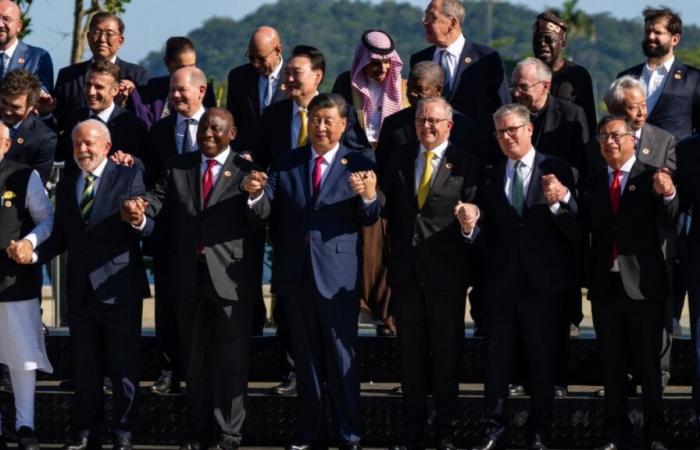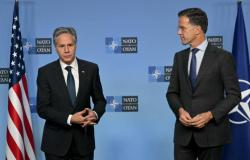With just two months to go before the end of President Joe Biden’s Administration, the United States is increasing financial, military and diplomatic support for Ukraine’s effort to defend itself from Russian aggression.
At the G20 Summit, the 19 strongest economists in the world, the European Union and the African Union, which began this Monday, the 18th, in Rio de Janeiro, Brazil, and ends on Tuesday, the American Government pressed for a “strongest possible” language about Ukraine, Deputy National Security Advisor Jon Finer told Voice of America during a press conference today.
Western diplomats have renewed their pressure for stronger criticism of Moscow following the Russian air strike over the weekend, the largest on Ukrainian territory in months.
They further warned that increased Russian war efforts could have a destabilizing effect beyond Europe.
Earlier this month, the US and Ukraine announced that North Korea sent more than 10,000 troops to help Moscow regain territory seized by Ukraine in Russia’s Kursk region.
Jon Finer recognizes that it is difficult to find consensus on global conflicts, given the diversity of the G20.
In addition to most like-minded G7 countries, the G20 also includes Russia, China and the governments of the so-called Global South.
“We’ll see where this ends up,” Finer added.
Since the G20 summit in Bali in 2022 – held months after Moscow’s invasion of Ukraine – the group has faced challenges in finding a response to the conflict.
Authorized long-range missiles
In recent times, the United States has been increasing its military assistance to Kyiv and has now authorized Ukraine to use long-range missiles supplied by Washington to strike inside Russia, according to media reports citing officials who spoke on condition of anonymity.
The U.S. deputy national security adviser declined to confirm the information but said it is “consistent” with the U.S. approach of adapting its response to developments on the ground to “enable the Ukrainians to continue to defend their territory and its sovereignty.”
Also today, Kremlin spokesman Dmitry Peskov said that, if true, Kyiv’s authorization to attack inside Russia with US long-range missiles “will mark a qualitatively new round of tensions and a level of involvement by Washington in the conflict in Ukraine.”
Changes in the White House and their consequences
Last week in Brussels, US Secretary of State Antony Blinken sought to reassure European allies that Biden is “committed to ensuring that every dollar we have at our disposal is pushed out the door between now and the 20th of January”, the date of Donald Trump’s inauguration.
The President-elect has criticized the use of US taxpayer money to help Kyiv and without providing details, Trump has repeatedly said he can quickly end the war, a statement that many in Europe fear could mean forcing Ukraine to capitulate.
Earlier this month, Ukrainian President Volodymyr Zelenskyy said he wants a “just end” to the war and that a quick end “means losses.”
On Saturday, the 16th, he told Ukrainian public radio that, under the Trump Administration, “the war will end more quickly”.
“This is their approach, their promise to their country,” he said, adding that “for them it is also very important.”
At the State Department, spokesman Matthew Miller told Voice of America during the press briefing today that Washington seeks an end to the war in Ukraine that defends the country’s territorial integrity and sovereignty, while ensuring that it does not “ rewards a dictator” who intends to take land by force.
The sentiment is shared by many European leaders, but they may ultimately be forced to accept a new political reality.
“No government in Europe will officially endorse a land for peace deal at this time. It is diplomatically and legally impossible to do so,” said Edward Hunter Christie, a former NATO official and now a senior researcher at the Finnish Institute of International Affairs.
Behind the scenes, however, some European leaders believe Ukraine’s chances are not strong enough, Christie told VOA, especially if the Trump Administration does not continue its assistance to Ukraine.
The US is rushing to disburse $20 billion under a Biden-led G7 initiative agreed in June to provide Kyiv with $50 billion in loans.
The funds will be repaid using interest income from Russian assets frozen in Western financial institutions.
A senior government official told Voice of America that the Biden Administration is “working full steam ahead” to have the loan disbursed before the end of the year.






